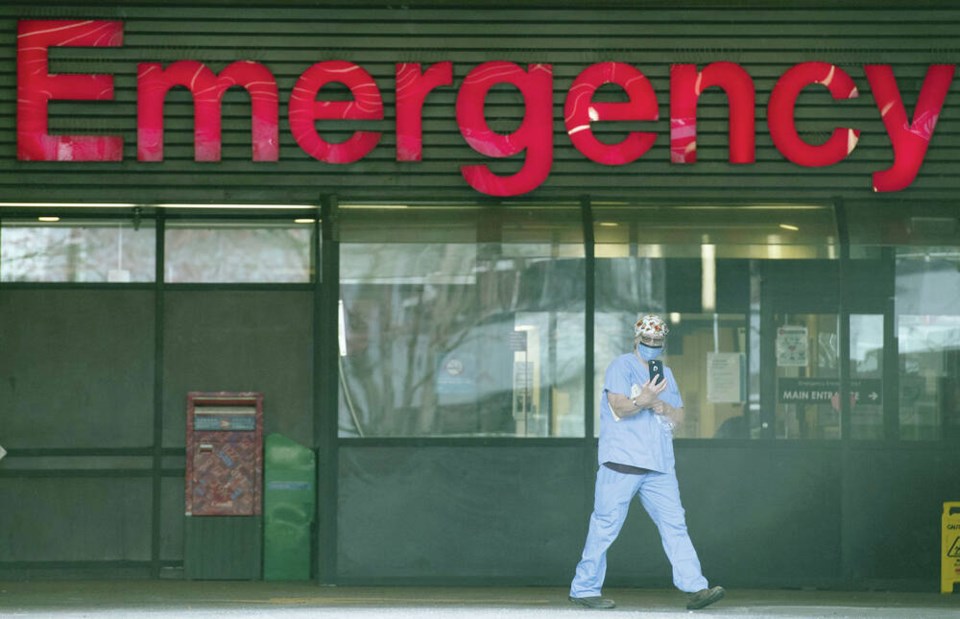These past two years have been very challenging for health-care workers on the front lines of the COVID-19 pandemic.
They have found themselves in frightening circumstances, dealing with an unpredictable virus that has turned their workplaces upside down.
They provided emotional support to sick or dying residents and patients, when loved ones could not be there.
They’ve borne the unimaginable burden of seeing this deadly virus cut short the lives of so many for whom they’ve provided care and support. And they’ve felt the moral stress of not being there to hold the hand of someone who is anxious or afraid — because they haven’t had the time to provide that care.
Health-care workers have pulled double shifts for days on end, as COVID thinned their ranks and compounded a staffing crisis that was already very serious before the pandemic hit.
They’ve been targeted for harassment by anti-vaxxers. Many have been impacted by the rise of anti-Asian racism that has accompanied this pandemic.
They’ve endured risk and uncertainty, and shown incredible courage and commitment.
And there’s no question. Many health-care workers are at the breaking point, exhausted by all they’ve been through.
We should all be very concerned about what that means for our health-care system going forward.
When we asked our own members last summer, nearly a quarter said they were considering leaving health care in the next two years because of their experiences through COVID‑19. Since then, we endured two more waves of COVID-19, and the situation is undoubtedly even more dire.
If we want our health-care system to survive and thrive in the face of public health emergencies, climate disasters and growing demographic pressures, we must act boldly to retain today’s skilled and experienced health-care workforce, and to attract the next generation of health-care workers.
We need to ensure that workers who are struggling with the impact of work-related trauma and stress can access improved mental-health supports — not just today, but in the months and years ahead.
And in a sector that relies heavily on casual workers, we need to create more opportunities for workers to access regular and more stable employment — and more opportunities to advance their careers through training and education.
Health-care jobs are among the most dangerous in the province, so additional measures are needed to keep health-care workers safe and healthy. And our workplaces should be more welcoming and inclusive and free from racism and discrimination.
And health-care workers need help. More hands on deck. More staff.
But there can’t be a serious conversation about retention and recruitment for health-care workers without addressing the need for a significant boost to their compensation package — a package that will attract and keep workers in this sector.
Like all workers in sa���ʴ�ý, our members are struggling to keep a roof over their heads in the most expensive housing markets in the country. They’re worried about the cost of groceries and child care and transportation in the face of inflationary pressures we haven’t seen for 30 years.
In a job market that’s seen steady growth in wages, health-care workers are falling behind.
Over the past two years, our political leaders — and health employers — have repeatedly praised everyday health-care workers for their extraordinary commitment during this global pandemic.
And with good reason.
They took exceptional measures to keep their patients and residents safe — to keep their families safe.
They did their jobs. They got vaccinated. Some gave up needed second jobs to protect vulnerable residents in care homes. They worked a lot of overtime.
And while most health-care workers don’t see themselves as heroes, they’ve certainly been celebrated as heroes for having our backs during this pandemic.
Well, today these heroes are at the bargaining table.
And now is the time to recognize these workers with significant improvements to their compensation package, and with other meaningful measures to relieve the staffing crisis.
Investing in our health-care workers today will help us build the sustainable health-care system we all want for the future.
Meena Brisard is the secretary-business manager of the Hospital Employees’ Union, representing more than 50,000 health-care workers across British Columbia. HEU represents a broad range of skilled health-care worker classifications across every part of the health-care team.



